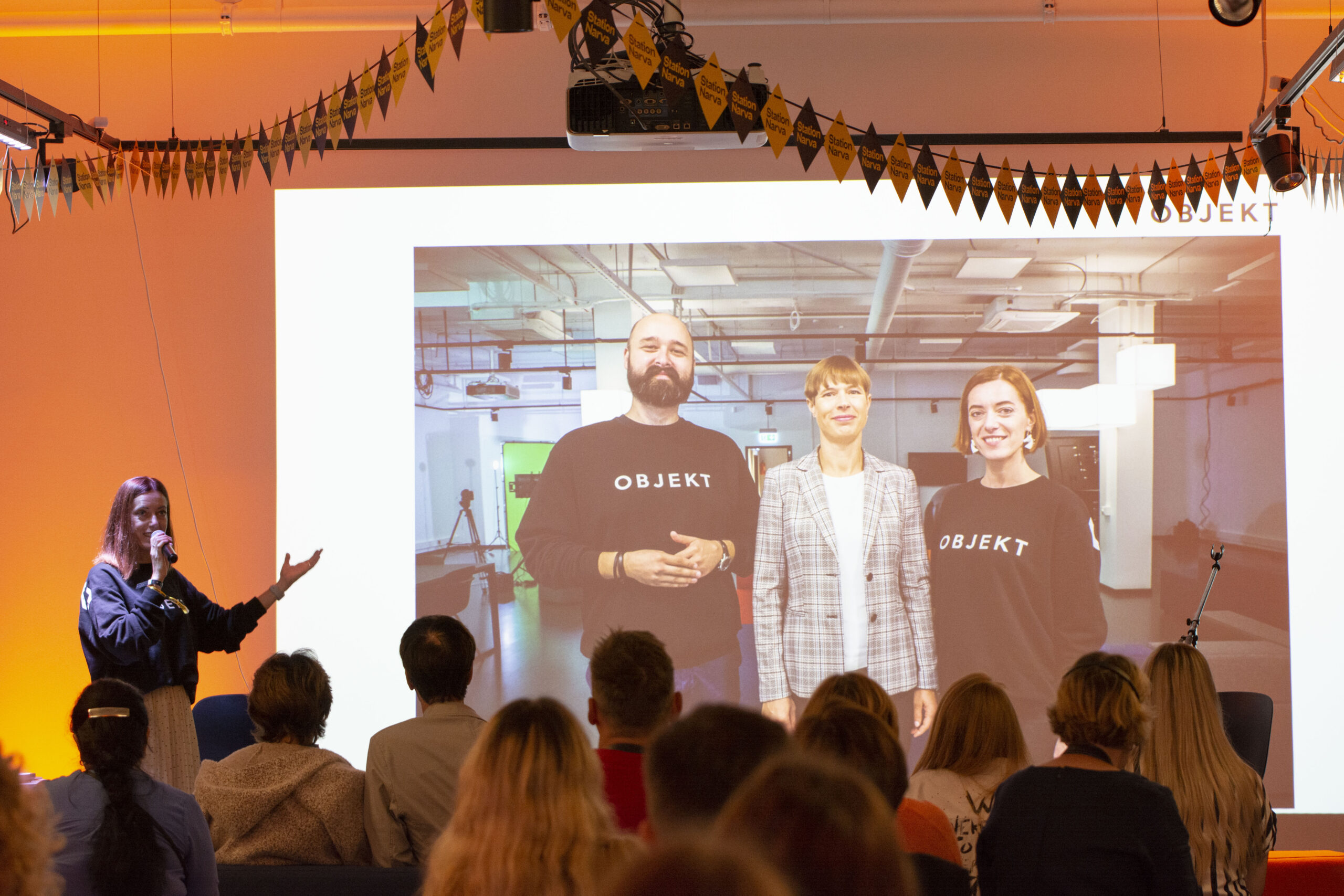Station Narva Business Day focuses on creative economy trends and new business models
The Business Day that will take place within the Station Narva festival at the creative incubator OBJEKT on Friday, 6 August, will focus on creative economy business models in the context of Just Transition.
The opening of the modern black and white photography exhibition “4+4= infinity” and an intro to the Old Narva VR application “Invisible Narva” will also take place during the event.
The Station Narva & OBJEKT Business Day is supported by the Integration Foundation and Startup Estonia.

The discussion topics of the day will focus on business models in the creative economy in the context of just transition in the Ida-Viru region. In particular, the discussions will touch on the sale and service provision related to creative property, directions in education, intersectoral cooperation and the impact of events and the creative sector on the economy.
Ahead of the main programme of the day, the Sillamäe artist Eduard Zentchik’s black and white photography exhibition will be opened in the gray hall of OBJEKT. The Business Day will open in the main hall with opening speeches by OBJEKT founder Jana Budkovskaja and the head organiser of Station Narva Helen Sildna.
The discussion will then proceed with new trends and business models in the creative economy, including the challenges of women in business. Panellists include, among others, the Black Nights Film Festival founder and director Tiina Lokk-Tramberg, whom the entertainment publication Variety named among the 50 most influential women in global creative economy, and the founding partner of the risk capital fund The Better Fund aimed at gender equality in the startup sector Liina Laas.
The following panel on cross-sectoral cooperation and mutual amplification features, among others, the head of production at the e-scooter company CoModule Sigrid Ojavee, director of the Tartu University Viljandi Culture Academy Juko-Mart Kõlar, and CEO of Narva Gate Jaanus Mikk, who coordinates the Kreenholm complex development plan.
The discussion on successful branding and reaching international markets includes, among others, the director of Narva Museum Maria Smorzevskihh-Smirnova, creator and owner of the fashion brand Iris Janvier Arina Baranovskaja and composer and producer Sander Mölder, who has met with success on the Japanese advertising market.
The event finishes off with a presentation of the Baltic Film and Media School VR application “Invisible Narva”, which provides users a gamified chance to take a virtual trek through Old Narva, before the March bombings.
The Business Day will take place in hybrid form, both on-site and online via Worksup.
The Station Narva Festival Pass at a price of 35 euros also gives access to the Business Day, on sale through Piletilevi. A separate ticket for the Business Day is on sale for 15 euros at shop.tmw.ee. Participation is also available digitally through the Worksup web platform, tickets cost 5 euros. Entry is free of charge for students and pensioners. Festival Pass holders and participants who don’t require a ticket have to register ahead of the event
On 5 August, ahead of the Business Day, the technology camp Unicorn Squad will take place at OBJEKT. Additional information and registration
The Station Narva & OBJEKT Business Day is supported by the Integration Foundation and Startup Estonia.
Station Narva 2021 festival begins on Thursday, 5 August with the opening of the Station Narva urban art competition winning project “Street Library” and public BAZAR talks. The Business Day will take place at the creative incubator OBJEKT during the day on Friday, 6 August.
On 6 and 7 August, the daytime programme includes adventure tours to the suburban dacha district Kudruküla, sightseeing tours, a traditional Narva-style breakfast, free city stage gigs and an art programme at the Narva Art Residency and the Narva Museum Art Gallery. The music programme concerts on both nights are at Narva Museum and Art Club Ro-Ro.
Station Narva festival is organised in line with rules for public events that are aimed at preventing the spread of the coronavirus.

